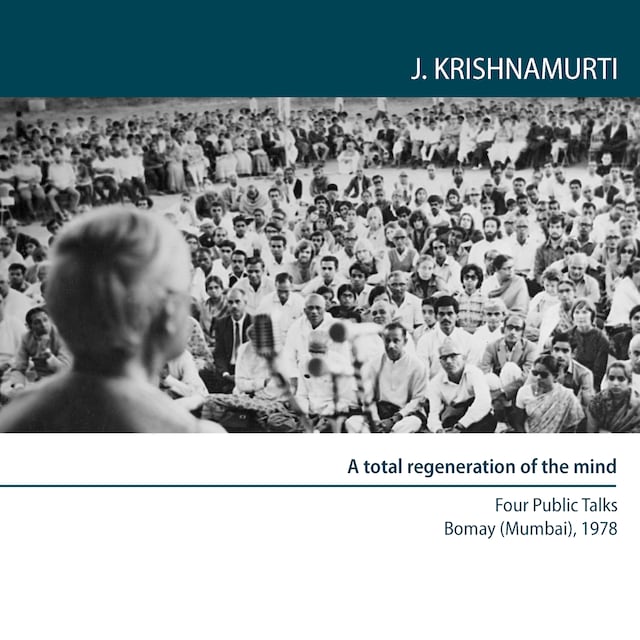
To learn about oneself one has to learn anew each minute
Four Public Talks, Bombay (Mumbai), India, 1971
Beschrijving van het boek
1. To perceive 'what is' is the basis of truth - 7February 1971
Duration: 86 minutes
• Where there is division there must be conflict. A mind in conflict must inevitably
be distorted and therefore it cannot possibly see clearly what is truth.
• We need a total change, a deep revolution, psychological revolution, the inward
revolution, without which you cannot possibly create a new society.
• Is it possible to observe, to perceive without the observer?
• How are images formed? Can the image-building come to an end?
• Knowledge is absolutely necessary. Is it possible that knowledge, which the
brain has accumulated through centuries, does not interfere with relationship?
2. Direct perception is freedom - 10 February 1971
Duration: 80 minutes
• Can the mind living in this world ever be free, not only superficially but
profoundly, at the very root of its existence?
• 'Freedom from' is an abstraction, but freedom in observing 'what is' and going
beyond it is actual freedom.
• How do I observe greed? Do I observe it as an outsider looking in or do I
observe it without the observer?
• Without the mind being free you cannot live in order.
• Q: Three years have passed; I have no energy to be aware of my reactions.
• Q: Can we seek God through observation?
3. Love is that quality of mind in which there is no division - 14 February 1971
Duration: 89 minutes
• To live in this world with intelligence, in spite of all the complications.
• Is it possible to be free of fear, not only the superficial fear in relationship but
the deep-rooted fear?
• Thought nourishes, sustains and gives continuity to fear and pleasure.
• When you are learning, your mind is awake.
• Truth isn't second-hand; you can't get it through a guru, a book, you have to
learn about it. The beauty of learning is that you don't know what truth is.
• What is love?
• A man who has not love in his heart, but the things made by thought, will make
a monstrous world, will construct a society that is totally immoral. To find out,
you must undo everything that you have done.
• What does it mean to die?
4. A mind in meditation is concerned only with meditation, not with the meditator
- 17February 1971
Duration: 87 minutes
• If you can put aside your favourite systems, if you can understand that
concentration is merely a resistance and therefore constant conflict and
wastage of energy, then we can find out for ourselves what is necessary for a
mind that is in a state of meditation.
• To learn about oneself, a living thing, you have to watch, learn anew each
minute.
• What is will?
• Consciousness is heritage, the result of time. Consciousness is the content of
itself, which is time, sorrow, confusion, misery. Intelligence has no heritage.
• What is a mind that is completely silent?
• Q: How does one cope with the extraordinary energy that human beings have?


